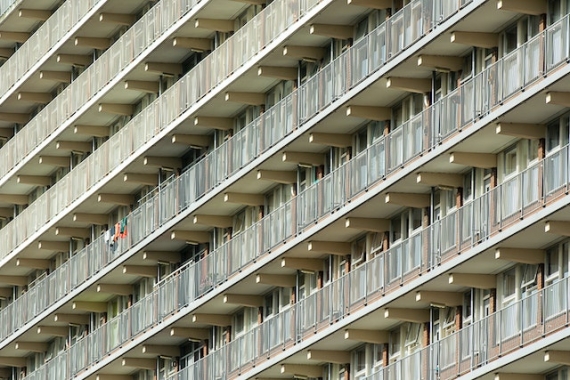Rationalisation of the social housing sector in Brussels Capital Region
Report from another Midi du Logement Social
Brussels, 27 March 2015 | Social
On the 26th of March, the social housing federation SLRB hosted the second 'midi du logement' of 2015. The lunchtime conference dealt with the need of rationalising the social housing sector in the Belgian capital.
Housing Europe trainee, Edit Lakatos attended the event and reports:
The conference was divided by two parts:
- Presentation by Caroline Osselaer, attaché lawyer of SLRB, Directorate of monitoring of SISP and tenants
- Round-table discussion
Why is the rationalisation needed?
This is necessary because of the provisions of the Government Decree of 26 July 2013 which foresee the rationalisation of the sector in the territory. There are 30 SISP now in Bruxelles-capitale (the smallest one has 200 dwellings) that need to be reduced to 16.
There is a new process of agreement with 5 criteria and 9 strategic objectives. The new agreement process has three phases and the agreement itself can be finalised after the opinion of the Government. Further, maximum 16 agreements can be signed.
What is an agreement?
This is an administrative authorization given by the SLRB who is acting as a public service real estate company.
What are the main ways?
The main ways are called legal operations which can be either fusion or separation/scission. The way should be decided by the general Assembly of SISP. A group of experts was made available by the region (until 30 November 2015) to help the transition process.
Read MoreKey point!
Ms Osselaer stressed that the rationalisation will not affect the tenants (they do not have to move out, the rent remains the same). She also highlighted that despite the new rationalisation, the region has a long way ahead to simplify the situation (as a good example she mentioned the city of Antwerp which has only one social housing company dealing with 40 000 dwellings).
As for the expected results, these include
- Reduction of the number of SISPs by a half
- Achievement a standard offer of the social houses on the territory of the region
- Reinforcement the efficiency of the sector
Leave comments